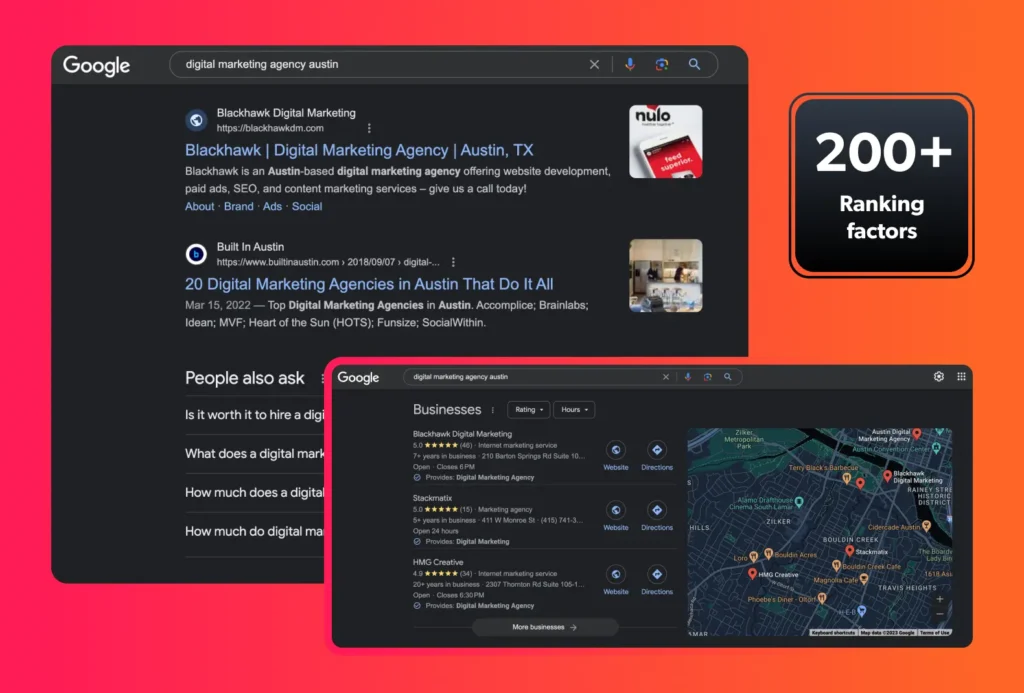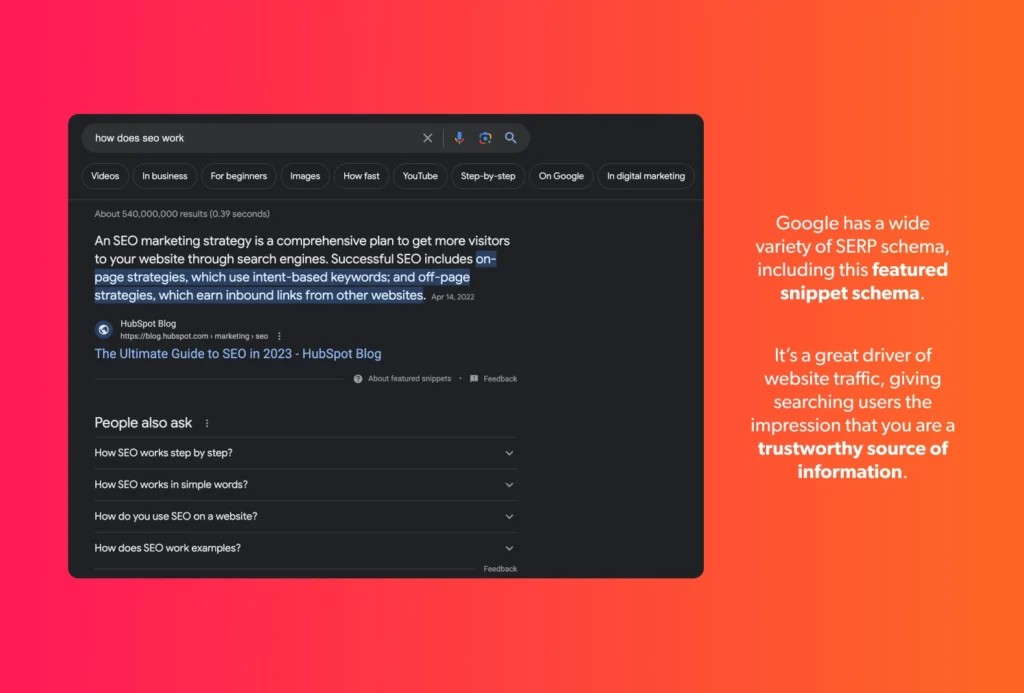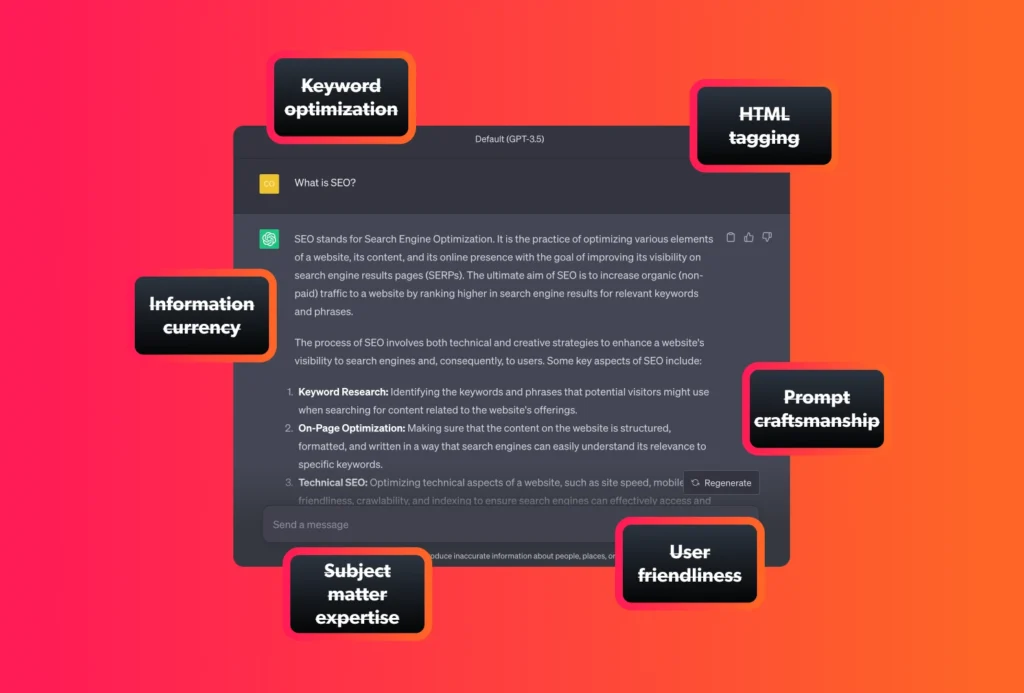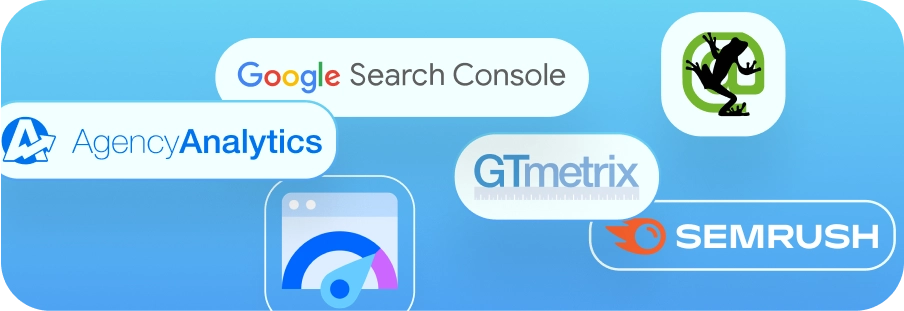One can’t really talk about SEO without mentioning SEO King, Brian Dean. His blog, Backlinko, is a hub of information on the practice of SEO, complete with highly optimized articles, helpful guides, and so much SEO your head could explode.
If the behemoth that is his SEO blog still doesn’t tickle your fancy, he’s got a whole YouTube channel dedicated to the subject, too.
Simplifying how to do SEO… too much?
Recently, Brian Dean shared his wisdom on a “how to do SEO” podcast on Hack the Entrepreneur, hosted by Jon Nastor. We took notes on it as we listened, despite being explicitly directed not to do so. The conclusion of said podcast includes Brian Dean saying something along the lines of, “when it comes to how to do SEO, just do what feels right.”
Now, we’re going to say something controversial here. We don’t actually think that’s true.
If you Google “how to do SEO”, you’ll be met with 1.4 billion search results of in-depth, step-by-step guides from respected sources like HubSpot, Ahrefs, SEMrush, and Moz. Even Google has an article that teaches SEO – and they’re the monster we’re all battling here!
The fact of the matter is, actually doing SEO – and doing it well – is backed by years of research, experience, testing, and trial and error – emphasis on the error.
We can understand where Brian Dean is coming from. When you spend years and years in this space, it’s inevitable to feel like all of the knowledge you have accumulated is base level, globally understood, and dare we say – even easy.

“How to do SEO” starts with learning about SEO.
We’re not saying this podcast is leading people astray – we would actually highly recommend it for those who are looking to get started with SEO. There are even a few helpful tidbits that we found useful:
- More is not always better – it’s about time we edit the old saying “content is king” to “quality content is king”.
- Only write about what you know – helpful for those who are already subject matter experts tasked with learning how to do SEO.
- Brian Dean follows this up by admitting that he doesn’t write about technical aspects of SEO simply because he doesn’t really know about them.
- Have something to contribute – not only do you have to know enough to write a full article about it, but some sort of conclusion has to be made – a point of view must be stated.
- Pro tip: this is a driver for something called a “featured snippet.”
- Don’t focus too hard on keywords – hyperfocusing on one or two specific keywords is a mistake that’s been made far and wide. Google’s smarter than you think. You don’t need to spoon-feed it the exact keyword 16 times over in a blog post.
- Update posts after they’re live – this is also a legitimate strategy, sending recency signals to Google.
- One callout here is that, like with many SEO practices, this is only to be done in moderation. Google takes its sweet time indexing “new” content, so you can take yours making quality updates.

Diving deeper into the world of SEO.
But all of this is just the beginning. Blackhawk’s team of SEO experts have compiled a list of SEO ranking factors, things to keep in mind, and notes on how Google evaluates your website. It’s based off of this Backlinko article written by Brian Dean himself.
To save you the reading time, let’s break down a few of the key points:
- Website performance and speed – Google treats your site like a user would, analyzing Core Web Vitals. This includes things like page speed and load times, Cumulative Layout Shift, JavaScript and CSS optimization, and so much more.
- Content quality and keyword targeting – this is the piece Brian Dean focuses on the most, but it’s only a small piece of the SEO puzzle. Keyword research and strategy help you create quality content, and drive results when supported by the other things in this list.
- Pro tip: websites that rank well for a variety of keywords perform better as a whole, so don’t get too in the weeds with one hyper specific keyword.
- User and search engine-friendly design – just like website speed and performance, the usability of your website impacts how users (and Google) view it. UX design is about creating a logical site architecture, visual hierarchy, and clear user journey.
- NAP consistency and citations – your NAP is your business’ name, address, and phone number. It should be clearly displayed across your site, on your Google Business Profile, and in any local search citations across the web. Oh, and it has to be up to date and consistent in every location.
- Backlinks and authority – if your site is viewed as an information hub, trusted resource, or authoritative figure across the web, Google will see it and reward you for it.
- Pro tip: don’t buy your backlinks – ever. Black hat marketing of this nature can easily cause Google to penalize you and tank your rankings.
Across SEO Strategy, Technical SEO, Local SEO, On-site SEO, Off-site SEO, and even design and user experience (UX), there are hundreds of things you can tweak, change, analyze, report on, update, and optimize. If your head is spinning, that’s normal. SEO is quite literally a full-time job.
All of this to say, SEO is a big, wide world. There are hours and hours of research, reading, and familiarizing yourself with the components of SEO before an expert is able to “just do what feels right.”

Doing SEO right in an AI-saturated world.
Another thing that both SEO experts and beginners must remember is that AI doesn’t always bring its A-game. Though platforms like ChatGPT make it easier to write outlines (another one of Brian Dean’s helpful tips), Google is always – at least – one step ahead.
The onslaught of AI-generated content doesn’t satisfy Google, making the “just do what feels right” mentality all the more treacherous. It’s even been stated that loading up your site with AI-generated content without using a human editor is against Google’s guidelines.
In the same way that you can’t learn how to do SEO by “doing what feels right” overnight, you also can’t learn to write well, or even direct ChatGPT on how to do it for you, overnight. Check out some of the resources our team of SEO copywriting experts have used to establish our expertise:
How to do SEO: let SEO experts take care of it for you.
A note for Brian Dean and other SEOs who are able to “just do what feels right”. Don’t underestimate the impact of the years you’ve spent getting to this point. Your input is valuable, and no piece of information is too small or too obvious.
If you’re someone who’s hoping to learn more about SEO, check out the following links from some of our favorite resources:
- SEO Basics: A Comprehensive Guide for Beginners (Backlinko)
- The Beginner’s Guide to SEO (Moz)
- The Ultimate Guide to SEO in 2023 (HubSpot)
- SEO Basics: The Ultimate Guide to SEO for Beginners (SEMrush)
Or, if you’re looking to partner with a team of experts who can take the stress of doing it yourself off of your shoulders, reach out to Blackhawk.
We’re always happy to help – whether it’s Technical SEO, Local SEO, On-site SEO, Off-site SEO, or all of the above.




